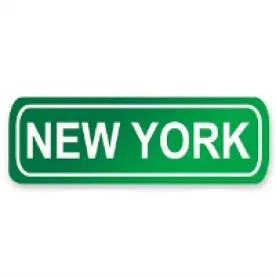With the January 1, 2018 effective date for the New York Paid Family Leave Law fast approaching, the New York State Workers’ Compensation Board (“WCB”) has issued model paid family leave (“PFL”) request and certification forms, as well as a model waiver form. The forms are available on the WCB’s New York Paid Family Leave website.
As we have previously reported, the New York Paid Family Leave Law provides a phased-in system of paid, job protected leave for eligible employees: (i) to care for a new child following birth, adoption, or placement in the home; (ii) to care for a family member with a serious health condition; or (iii) for qualifying exigencies related to military duty. To receive PFL benefits for any of these covered leave purposes, eligible employees will be required to complete and submit a general Request for Paid Family Leave Form (Form PFL-1).
On the Form PFL-1, employees will be required to provide certain information in support of the leave request, including the covered reason for which PFL will be taken and whether it will be a continuous or intermittent leave. Form PFL-1 also contains a section (Part B) which must be completed by the employer and returned back to the employee within three business days. Among other information, employers will be required to provide a breakdown of the employee’s last 8 weeks of gross wages and the resulting average weekly wage, as well as information about any PFL and/or New York State disability leave that the employee has taken in the preceding 52 weeks. Once the employer has completed Part B and timely returned the Form PFL-1 to the employee, it will then be the employee’s responsibility to submit the form, along with any required supporting documentation, to the employer’s PFL carrier (in the case of a self-insured employer, the Form PFL-1 would be retained and processed by the employer).
In addition to Form PFL-1, employees must submit appropriate certification form(s) depending on the reason for requesting leave:
-
An employee requesting PFL to bond with a newborn, adopted child, or foster child must complete and submit a Bonding Certification (Form PFL-2), which requires the employee to attach specified documentation evidencing the relationship between the parent(s) and child (e.g., birth certificate or court document finalizing adoption).
-
An employee requesting PFL to care for a covered family member with a serious health conditionmust submit both a Release of Personal Health Information (Form PFL-3) and a Health Care Provider Certification (Form PFL-4). Form PFL-3 must be completed by the family member for whom the employee will be caring or an authorized representative. It authorizes the family member’s health care provider to release medical information about the family member to the employer’s PFL carrier (or the employer, if self-insured) in connection with the leave request. Form PFL-4 must in turn be completed by the family member’s health care provider, and gathers information about the nature of the family member’s health condition and the anticipated duration of the care period.
-
An employee requesting PFL to assist a family member with exigencies in connection with a military deployment must submit a Military Qualifying Event Certification (Form PFL-5), along with a copy of the member’s covered active duty orders.
In addition to the leave request and certification forms, the WCB has also released an Employee Opt-Out of Paid Family Leave Benefits (“Waiver Form”). Pursuant to the final regulations, an employee who is being hired on a temporary, periodic or otherwise short-term basis must be provided the option to waive PFL benefits when either: (i) the employee’s regular work schedule is 20 or more hours per week but the expectation at the start of employment is that the employee will not work 26 consecutive weeks for the employer; or (ii) the employee’s regular work schedule is less than 20 hours per week but the expectation at the start of employment is that the employee will not work 175 days in a 52 consecutive week period for the employer. Employees who opt to execute a Waiver Form will be relieved from making payroll contributions to the cost of PFL benefits.
However, as indicated on the Waiver Form, the waiver will be deemed revoked if the employee’s work schedule changes such that it is anticipated that the employee will either work more than 20 hours per week for 26 consecutive weeks, or work less than 20 hours per week but at least 175 days in a 52 consecutive week period. An employee may also decide to revoke a waiver at any time. In either event, once the waiver is revoked, the employee will be responsible to begin making payroll contributions to cost of PFL benefits going forward. An employer may also take retroactive deductions for the period of time the employee was covered by the waiver, and that period of time would count toward the employee’s eligibility for PFL.





 />i
/>i

